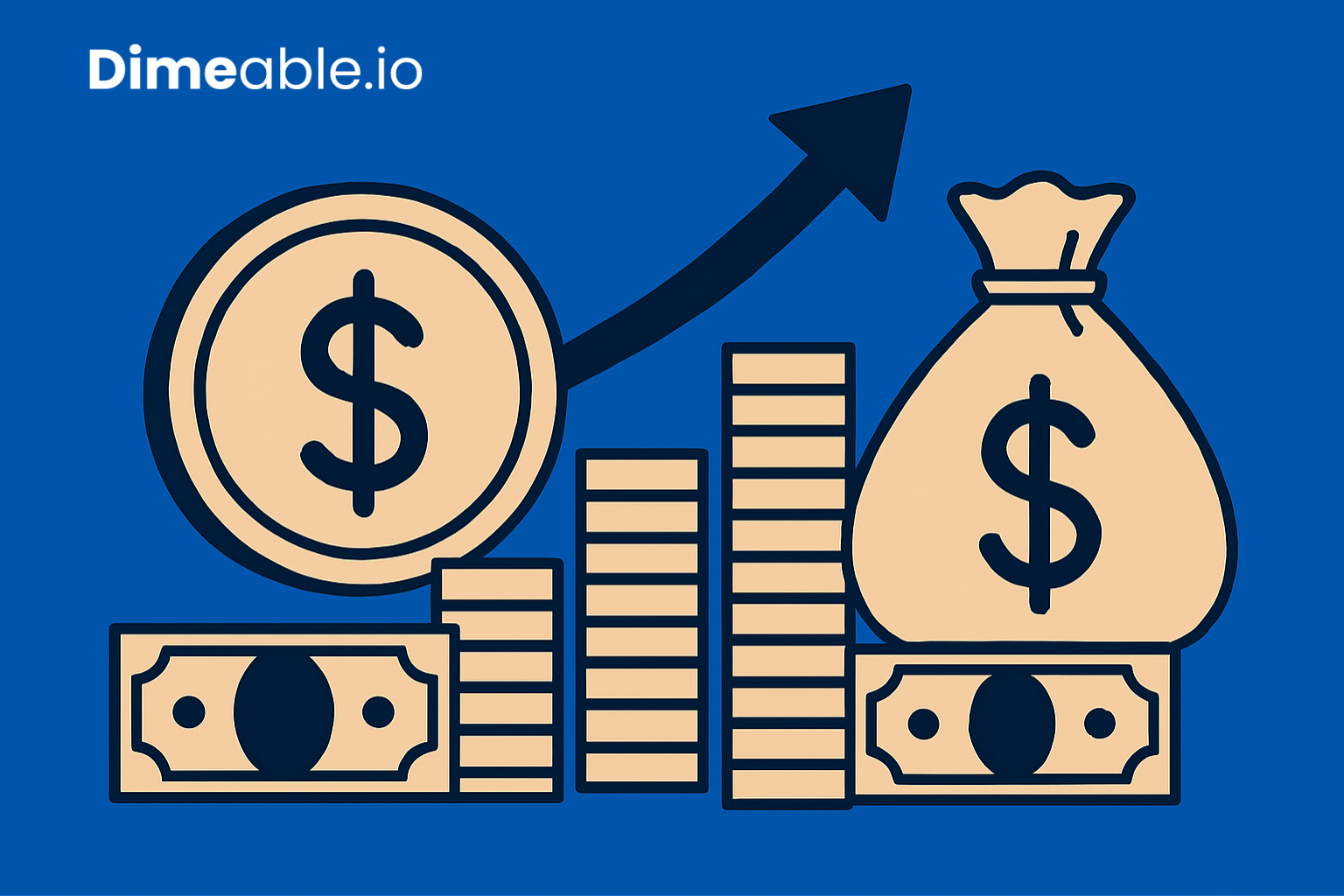Let’s be honest—money talk usually feels like listening to a robot recite math equations. SIPs, EMIs, ROI… why does personal finance sound like a spell from Harry Potter?
But here’s the secret: you don’t need to be a finance wizard to get rich. You just need some smart money habits that actually work in real life.
Let’s break down 8 golden rules that’ll help you dodge debt traps, grow wealth, and maybe—just maybe—make your money work harder than you do.
💸 1. The SIP Rule (a.k.a. the 7-5-3-1 Formula)
If investing gives you anxiety, this rule is your therapy.
-
7+ Years → Stick with equity mutual funds for the long haul.
-
5 Funds → Diversify across different types. No one-night stands with one fund.
-
3 Phases → Accumulate, Grow, Withdraw. Like life, but with better returns.
-
1 Step-Up → Increase your SIP every year as your income grows.
Think of SIPs like planting a tree. Water it monthly, be patient, and one day you’ll be chilling under its shade with passive income vibes.
🚨 2. The Emergency Fund Rule
One minute you’re planning a Goa trip, the next—boom! Your laptop dies, or your company starts layoffs.
Emergency funds are your financial seatbelt.
-
Save at least 6 months of living expenses.
-
Keep it in a liquid fund, not under your mattress.
-
Use it only for actual emergencies—hangovers don’t count.
This fund doesn’t make you rich overnight, but it saves you from falling face-first into debt.
💰 3. Pay Yourself First Rule
Most people do this:
Income – Expenses = Savings ❌
But financially savvy folks flip it:
Income – Savings = Expenses ✅
It sounds backwards, but it’s genius. Automate your savings before you spend. Out of sight = out of temptation.
🧮 4. The Rule of 72
Wanna double your money without a crystal ball?
Here’s the shortcut:
72 ÷ Expected Return = Years to Double Your Money
-
12% return = Money doubles in 6 years
-
9% return = Doubles in 8 years
Bonus rounds:
-
Rule of 114 = Triple your money
-
Rule of 144 = Quadruple it
🧾 5. The EMI Rule
EMIs are like those clingy friends—cool in small doses, chaotic if you let them take over.
Golden Rule:
Your EMIs should be less than 30–40% of your monthly income.
More than that and you’re not living—you’re just paying bills.
🛡️ 6. Life Insurance Rule
If you love your fam, don’t gift them your unpaid loans.
-
Get term insurance worth 15–20x your annual income.
-
Skip the complicated ULIPs. Pure term plans > everything.
-
Buy it young = super cheap.
Because protecting your family > anything else.
📈 7. 100 Minus Age Rule
How much risk is right for you? Use this old-but-gold rule:
100 – Your Age = % of portfolio in equities
So if you’re 25, invest 75% in stocks and 25% in safer stuff like bonds or debt funds. As you age, reduce risk.
Simple. Sensible. Safe-ish.
🏠 8. The Income-Rent Rule
Is your rent eating more than your dinner budget?
-
Ideal rent = 25–30% of your monthly income.
-
Anything more = lifestyle inflation trap.
Stop trying to live like a K-drama lead on a chaiwala budget. Downsize, or upskill your income.
🎯 Final Thoughts: It’s Not About Being Rich. It’s About Being Free.
These rules aren’t get-rich-quick schemes. They’re about building habits that make your money behave.
Master just one rule. Then two. Stack them up like financial LEGO blocks. Over time? Boom—you’ve built your fortress of wealth.
Money doesn’t buy happiness—but it buys freedom, time, and peace. And those? Priceless.
🔍 FAQs – Money Rules That Make You Rich
Q1. Can I follow these rules even if I earn a low salary?
Absolutely. These aren’t income-based. They’re mindset-based.
Q2. Which rule should I start with?
Begin with “Pay Yourself First” and build your emergency fund. The rest can follow.
Q3. What if I already have a lot of EMIs?
Prioritize paying them off. Then avoid adding new ones until you’re financially stable.
Q4. Is mutual fund investing risky?
Short-term? Maybe. Long-term? With SIPs and diversification—much less risky.
Q5. Do I need both term and health insurance?
Yes. Term insurance protects your family. Health insurance protects you from medical bankruptcy.
🔗 Explore more no-BS money guides at Dimeable.io – where finance is finally fun.



Pingback: The Rich Get Richer When the Poor Think Everything Is a Scam